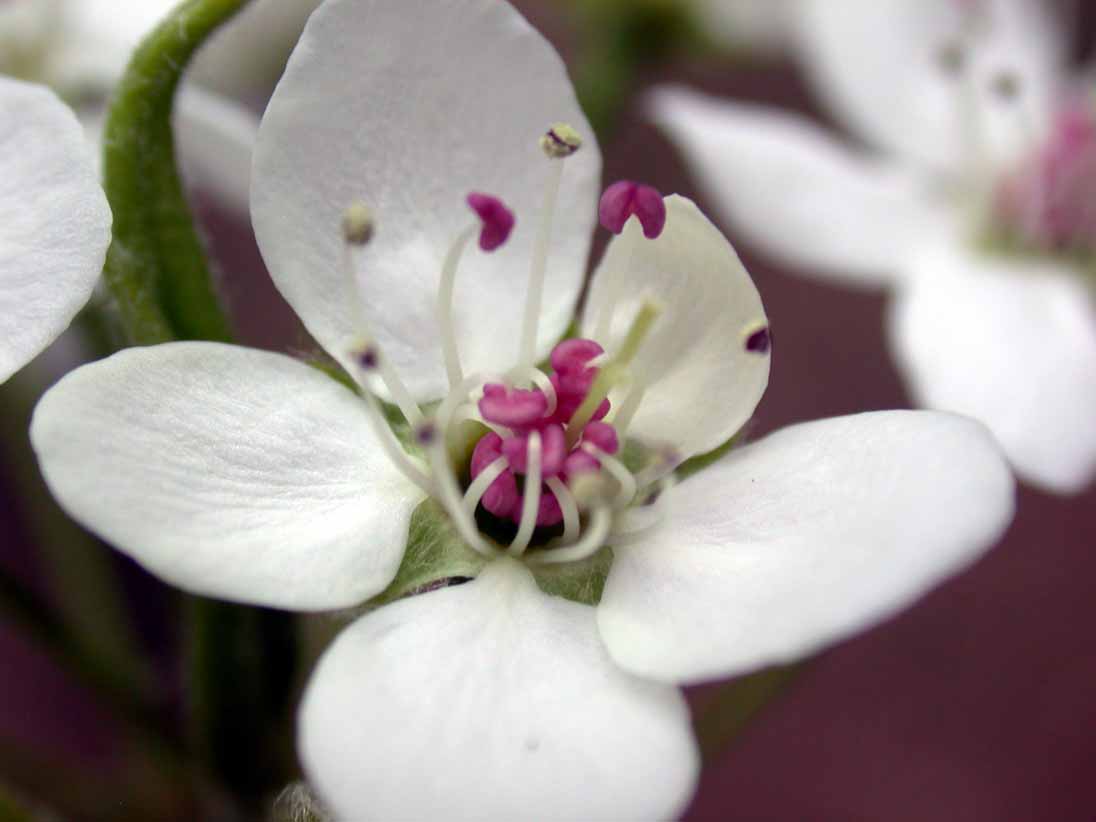|
|
BIOL 4320 Field Botany Phil Ganter 301 Harned Hall 963-5782 |
|
Bradford Pear blossom - Bradford or Callery Pear (Pyrus calleryana, family Rosaceae) blooms profusely but does not produce edible fruit (although some diehards have made wine from it). It's a popular yard tree in Tennessee noted for its flowers and short life span. Many of our most popular fruits come from the rose family, including apples, pears, peaches, cherries, apricots, nectarines, and plums. |
|
